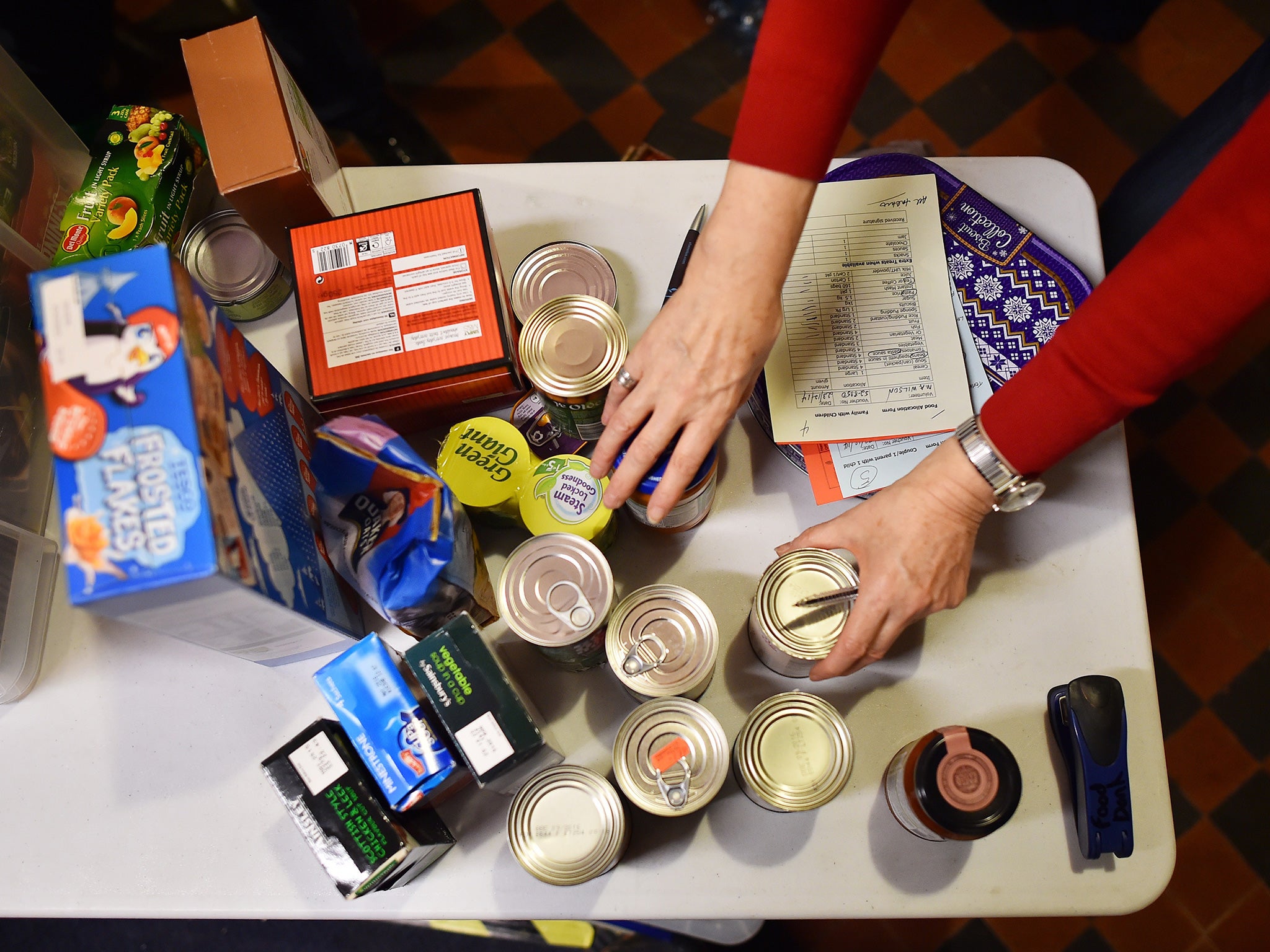Hunger in UK ‘significant and growing’ but ministers failing to act, MPs warn
Ministers accused of letting food poverty ‘fall between the cracks’ as one in five British children living in a food insecure home

The government has been accused of presiding over “significant and growing” hunger as a report warns that one in five children in the UK live in homes that are severely food insecure – making it the worst for child hunger in Europe.
A combination of high living costs, stagnating wages and the rollout of universal credit has led to a steady rise in food insecurity – yet ministers have allowed the issue to “fall between the cracks”, according to a report by the Environmental Audit Committee.
In a damning indictment of the welfare system, the MPs accuse the government of being “silent” on food insecurity in its obesity strategy, and call for the appointment of a “minister for hunger” to ensure cross-departmental action on the issue.
The report cites figures showing that 2.2 million people in Britain are severely food insecure – the highest reported level in Europe. This indicates that the UK is responsible for one in five of all severely food insecure people on the continent.
Recent data published by Unicef shows one in five youngsters under 15 now live in a food insecure home – which the committee described as a “scandal that cannot be allowed to continue”.
It comes after Philip Alston, the UN’s special rapporteur on extreme poverty and human rights, said policies and drastic cuts to social support were entrenching high levels of poverty and inflicting unnecessary misery in the UK, and that Brexit was exacerbating the problem.
Campaigners welcomed the committee’s report, saying low benefit levels, delays in payments and sanctions, combined with the high cost of living, were “tipping people over the brink”.
Emma Revie, chief executive of The Trussell Trust, said: “A failure to address the root causes of poverty has led to soaring need for food banks, with more than 1.3 million food parcels provided to people by our network last year.
“It’s not right that anyone in our country faces hunger, and it’s not inevitable. It’s time for the government to take concrete steps towards a UK where everyone has enough money for food.”
Helen Barnard, deputy director of policy and partnerships at the independent Joseph Rowntree Foundation, urged the government to end the benefits freeze a year early so the incomes of struggling families keep up with the cost of living.
“Families struggling to put food on the table is something we cannot accept in a compassionate and just society,” she continued.
“The rising tide of poverty means that more people are trapped in situations where they cannot meet their needs: buffeted by rising costs and stagnating incomes, many have to skip meals and cut back on food to get by.”
A recent study of food poverty in the UK found that the families of nearly 4 million children would struggle to afford enough fruit, vegetables and other healthy foods to meet the government’s nutritional guidelines.
Alison Garnham, chief executive of the Child Poverty Action Group, said: “That we should need reminding of the UN’s sustainable development goals in such a rich country is a scandalous development.
“Chief among the actions needed to end UK hunger is to end benefit freezes, urgently reform universal credit so it is fit for the purpose before it is rolled out to anyone else and abolish the two-child rule and benefit cap.”
A government spokesperson said: “Household incomes have never been higher and the number of children living in workless households is at a record low, but we know there’s more to do ensure that every family has access to nutritious, healthy food.
“We already provide support through free school meals and our Healthy Start Vouchers, while we spend £90bn a year on working-age welfare and will be spending £28bn more by 2022 than we do now.”
Subscribe to Independent Premium to bookmark this article
Want to bookmark your favourite articles and stories to read or reference later? Start your Independent Premium subscription today.

Join our commenting forum
Join thought-provoking conversations, follow other Independent readers and see their replies